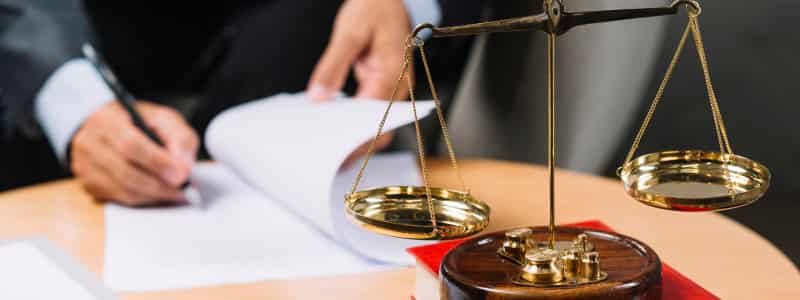Sydney-based lawyer with experience within family and personal injury matters. Formerly Legal Intern at Lawpath.
A trust is a relationship that involves one party holding property for the benefit of another. In trust law, the trustee has legal ownership of the property, with beneficiaries receiving the trust property. In this article, we’ll outline the roles of trustees and beneficiaries and what their obligations are.

Get on demand legal advice for one low monthly fee.
Sign up to our Legal Advice Plan and access professional legal advice whenever you need it.
What is the purpose of a trust?
A trust is simply a relationship. As the name implies, a trust involves reliance on another party. This relationship revolves around property which is held for the benefit of another. Known as ‘trust property’, this can be in the form of cash, real property, securities or even insurance policies.
There are many reasons a person may choose to establish a trust, including tax minimisation or to distribute property over a longer period of time to beneficiaries.
Different types of trusts
The ambiguous nature of a trust structure means it can come in different forms. Some of the most common trust structures include:
Fixed/unit trusts
Fixed trusts mean that the beneficiaries’ distributions cannot be changed. This is defined in section 272 of the Income Tax Assessment Act 1936 (Cth). These entitlements cannot be changed by the trustee. These are often allocated in units, known as a unit trust. If you’re thinking of setting up a fixed unit trust, it’s important to have it written in a Unit Trust Deed.
Discretionary (family) trusts
Common amongst families, the distinguishing feature of a discretionary trust is that the trustee can choose what each beneficiary receives and also in what amounts.
Example
Sally is the trustee of a discretionary trust of which her 3 children are all beneficiaries. Sally uses her discretion to distribute higher amounts of the trust property to the oldest child, as they have just started university.
Testamentary trusts
A testamentary trust is a trust which takes effect upon the death of the person who creates the trust. These are normally specified in a person’s will, and further, can be discretionary or fixed.
Example
Sally has created a testamentary trust. She has appointed her Husband as the trustee, with him and her 3 children being the beneficiaries. Sally’s children can receive $1,000 per year until they turn 18, then $10,000 every year after that.
Trustees and Beneficiaries
Trustee
The trustee is the entity which holds the trust property. There can also be more than one trustee of a trust. Further, the trustee can be a person or a company. In either case, the trustee has to be capable of holding trust property in their own right. Trustees owe the following duties to beneficiaries:
- To preserve trust property
- Acting in good faith
- Loyalty to beneficiaries
- Impartiality
- Keep accurate records and information
Beneficiary
Beneficiaries are those who stand to benefit from the trust. Similar to a trustee, it can be a person or a company. A trustee can also be a beneficiary. However, they cannot be the sole beneficiary of the trust. Beneficiaries pay tax for trust based on their individual income. Beneficiaries can be under the age of 18 or those lacking capacity to make legal decisions. In this case, a trust can help ensure that someone is taken care of. Beneficiaries, once they receive the trust property, have full legal rights over it.
Conclusion
Trustees are the legal owners of trust property, with the power (or obligation) to distribute it to the beneficiaries. Beneficiaries to a trust whilst not being the legal owners of the trust property, have an equitable interest in it. This is why trustees have strict obligations when it comes to holding and distributing trust property. If you have further questions about the roles of trustees and beneficiaries, it may be worth getting in touch with a trust lawyer.

Get a fixed-fee quote from Australia's largest lawyer marketplace.






